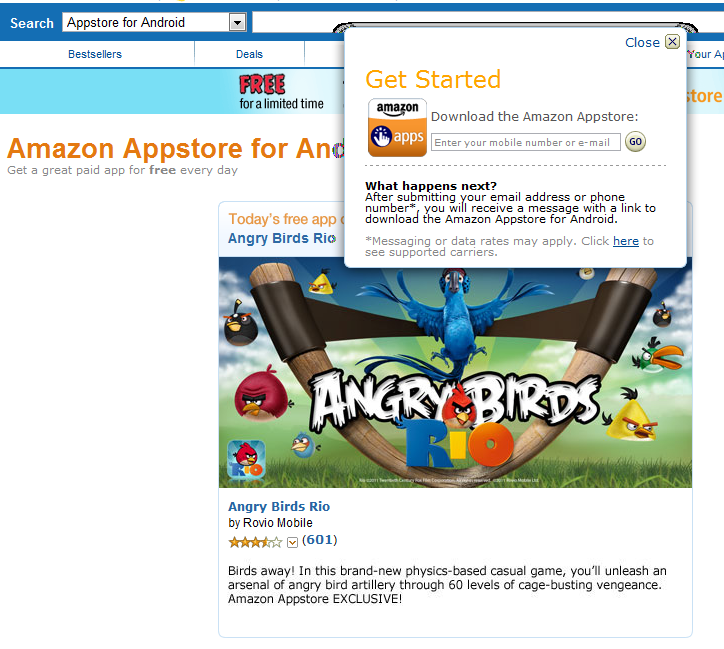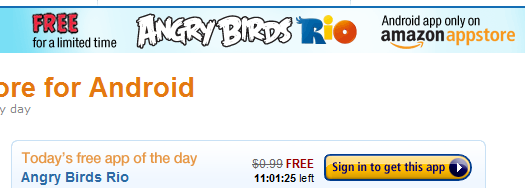Earlier this week, Amazon launched the Amazon Appstore by giving away Angry Birds Rio for free (the #1 paid and top-grossing app on iOS). That promotion was in conjunction with an announcement that Amazon would giveaway one paid app for free each day. Today's free app should also be familiar: the 'insanely addictive' Doodle Jump (which, behind Angry Birds, may be the next biggest game on iOS).
Amazon is clearly moving into the application and Android space by distributing great, familiar titles in a way that fits with their brand / style: by winning on price.
Also worth noting: Angry Birds Rio is still available for free on the Appstore. When it first launched, it was marketed as expiring that day...




